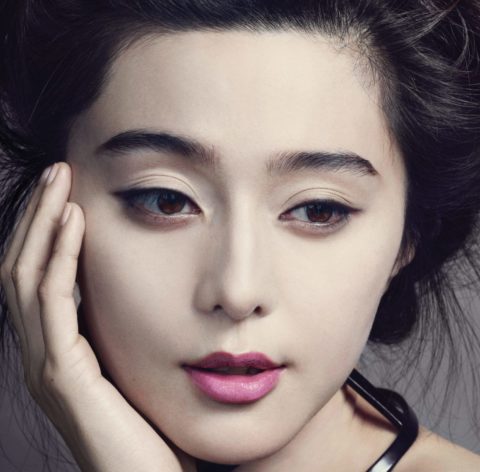Chinese Superstar Fan Bingbing on Fashion, Feminism and Centuries of Slut-Shaming

For most people born in North America or Europe, the name Madame Bovary brings connotations of tragedy, glamour and excess—themes that dominate Flaubert’s novel of the same name. In parts of Asia, however, the Bovary name has a darker meaning altogether. For more than 100 years, it has been used to shame Chinese women who are deemed to be impure, provocative or promiscuous. In her new film, I Am Not Madame Bovary, actress Fan Bingbing takes on the powerful role of Li—a small-town protagonist intent on clearing her name the thorny Bovary title bestowed upon her by a shady ex-husband. Li’s tenacity pits her against her own government (she throws herself in front on state cars to get noticed); the ancient culture in which she was raised; and a great deal of high-powered, bigoted men who underestimate her intelligence.
When Bingbing was a young woman living in the big city of Qingdao in China, she and her girlfriends would often discuss the threat of being called Madame Bovary. “It wasn’t a joke,” Bing recalls, placing her diamond-clad ring fingers on her knee during a quick visit for the movie’s premiere at the Toronto International Film Festival. “It was a serious accusation that could change your life and make you a pariah. My friends and I were raised to stay away from behavior that could [potentially] bring us scandal.” In many cases, women who were made to wear the proverbial scarlet MB weren’t radicals or philanderers at all; their spouses simply claimed they were unfaithful so they could remarry legally. “I want young women to see this film,” says Bingbing. “It will give them something to think about and as they grow older and come back and watch this film again, they will be able to pick up on some of the nuances.”
Bingbing’s performance in I Am Not Madame Bovary came without the type of wardrobe department that she grew accustom to on the sets of her record-breaking, self-produced 2004 TV series, The Empress of China. In that project—which has helped Bingbing rank number five on Forbes magazine’s highest-paid actresses list this year—she wore more than 260 costumes over the course of one season (many of which were recreations from the Tang dynasty). In I am Not Madame Bovary, her wardrobe experience—while still informing her performance—didn’t match up to her TV past. “The [Bovary] crew went down to the Jiangxia area in eastern China and got uniforms that farmers from the district wore and distressed them before giving them to me,” she says. “By wearing their clothes, I had a deeper sense of what my role in this film was supposed to be. “While it wasn’t glamorous, putting myself in Li’s shoes was important. It was not just a metaphor for me.”
See the film’s trailer:







